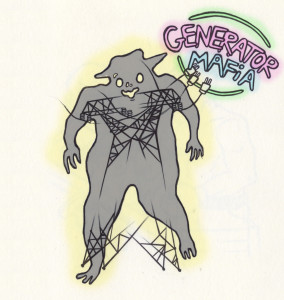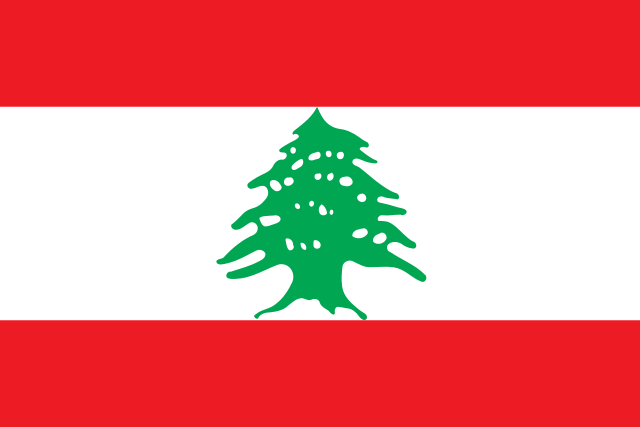They call it “Sin City of the Middle East.” Chic nightclubs and trendy rooftop bars sparkle along Beirut’s Mediterranean coast — unmistakable manifestations of a Lebanese lust for life. But this determination to seize the day comes after years of war, military occupation, political killings and incessant political turmoil. Despite maintaining a façade of stability, Lebanon still bears the wounds of decades of unrest. Along with its power grid, nearly all of the country’s infrastructure was devastated during the 1975 Civil War and was never adequately rebuilt. The consequent electricity crisis stands at the forefront of Lebanon’s economic stagnation and perfectly encapsulates the suffering of a state besieged by both corruption and poor governance.
In the 25 years since the end of the Lebanese Civil War, the country’s citizens have struggled with an inconsistent supply of electricity. Today, the state-owned electricity company, Electricité du Liban (EDL), is still struggling to keep the lights on. Chronic power outages have been felt throughout the country, lasting anywhere from 3 to 10 hours per day, depending on location. According to the World Bank, Lebanese citizens suffer, on average, 220 electrical interruptions per year — giving them the worst electrical supply performance in the Middle East. To make matters worse, the demand for power had been steadily rising by 6-8 percent per year, even before the influx of more than 1.2 million war-displaced Syrians over the past three years.
EDL, which relies heavily on government budget subsidies, has only served to drain the country’s finances and contribute to Lebanon’s widening fiscal deficit. By some estimates, the total accumulated deficit of EDL is about $27 billion, or 40 percent of the total Lebanese public debt. Factoring in the cost of emergency breakdowns and the reality that Lebanon has the highest estimated cost for its electrical energy production in the world, it’s no wonder that this small nation, tucked into the Levant, produces barely enough energy for 75 percent of its own power needs.
To compensate for growing shortages, Lebanon struck a $360 million deal with Turkey to import energy from offshore Turkish power stations. However, these stations only generate a marginal portion of the energy they were originally intended to provide. The deal has also been shrouded in controversy, with each side blaming the other for the lackluster results. While the Lebanese government claims that Turkey supplied inadequate generating equipment, the Turkish power company, Karadeniz Holding, blames Lebanon for providing substandard fuel. So far, there has been no resolution.

In these trying times, the Lebanese have had no choice but to be resilient and adapt. The Beirut Electricity App allows Beirutis to monitor daily power cuts. In the meantime, a popular Twitter hashtag, #BlameBassil, mocking Lebanese Energy Minister Gebran Bassil for the power outages, has taken off. To compensate for power shortages, some municipalities have taken matters into their own hands. The city of Sidon, for example, has installed solar panels to run its traffic lights, and other municipalities have invested in large generators. However, the most common trend has been turning to private power generators run by well-connected traders unsympathetically dubbed the “generator mafia.”
The Lebanese are no strangers to rough business culture. A well-entrenched system of patronage and bribery has led to the ascendance of a new, politically backed crime syndicate. These influential men exploit political ties to profit tremendously from supplying private power. One study estimates that the private generator industry earns $1.2 billion annually. Those profits come mostly from exorbitant prices maintained by restrictive practices such as informal agreements, price-fixing and the division of the market into geographic spheres of influence. These practices continue to thwart competition by creating high barriers to entry, keeping control of the industry in the hands of a few.
But if a string of recent protests is any indication, the public has had enough of the price gouging from private suppliers. As Michel Massad, a local Beiruti leader, put it: “When the price of oil dropped, the generator prices should have dropped too, but they didn’t…They should all be arrested.” However, any proposed reforms must safeguard public welfare by targeting corruption, without alienating or expunging private suppliers and their networks, as they remain essential to much-needed energy production. Protesters hope that by getting the private sector to play by the rules, more reasonable prices will emerge. But no such reforms have been made.
To many, the blame resides squarely with the Lebanese government. Lebanese politics appear defined by chaos, even when it comes to the simplest tasks; the current government was not able to elect its president for almost a year due to partisan conflicts. When it comes to electricity, Lebanon is at once united by a common predicament and bitterly divided by its sectarian parliament. Whichever minister leads reform efforts will be scrutinized by those who do not share that person’s political identity — a fact that has significantly slowed progress.
Nor is electricity a priority for the problem-ridden Lebanese government. Currently, the nation suffers from a shrinking government budget, crumbling infrastructure, a lack of human resources and powerful interest groups fighting to thwart reform. The Syrian refugee crisis and subsequent political instability have caused Lebanon’s budget deficit to jump to $5.1 billion today from $3 billion in 2009, before the refugee influx hit. This humanitarian crisis has also strained national health, education and infrastructure services, leaving a third of Lebanon’s young labor force unemployed. With so many other pressing concerns for Lebanese officials to tackle, reforms of the energy sector have largely been swept under the rug.
Furthermore, those charged with solving the energy crisis — premiers, bureaucrats and ministers — are the ones least likely to be affected by it. After all, many of these politicians have deep ties to the generator mafia and have the financial means to enjoy uninterrupted electricity from both private and public sources. As a result, they are more invested in sustaining the profitability of the private electricity industry than they are in providing affordable resources to Lebanese citizens.
In light of all this, one thing is increasingly clear: The Lebanese government cannot face this crisis alone. It lacks the required funds and political bandwidth to reform the energy sector. In deliberations over how to tackle the energy crisis, Lebanese politicians and policymakers would do well to take a lesson from other countries’ experiences. In recent decades, there has been a global trend away from heavy state involvement in the electricity industry since competitive markets are said to improve efficiency and raise investment. But as is so often the case in the application of economic theory, expectations fall short of reality.
Despite the voracity of deregulatory boosterism, experimentation with energy reform has seen mixed results. Deregulation policies were credited with reducing electricity prices by as much as 35 percent in Chile and Australia, but in Sweden these same policies left the Scandinavian nation with the highest electricity prices in nearly all of Europe. A closer look at these cases reveals that the success or failure of deregulation is entirely contingent on the design and enforcement of competition laws — something the Lebanese government would do well to keep in mind when engineering its own reforms.
The question then becomes how to properly configure market structures to ensure effective reform. For a transition towards increased private sector involvement to succeed, there must be specialized agencies consisting of qualified policymakers who fully understand the complex dynamics of regulation and markets in general. In particular, they must have a robust understanding of the widely unregulated private sector that already exists within Lebanon. Otherwise, the state risks succumbing to higher electricity prices and the deterioration of electricity provision at the hands of energy cartels.
Lebanese policymakers have little choice but to integrate the government and the private sector and implement anti-trust laws. This is a tall order, considering that the enforcement of existing laws has been overlooked for years, but the stakes have never been higher. And there are signs of hope. The Ministry of Trade and Economy, the department charged with fighting high prices and monopolies, has been slowly revamping its competition policy to be in accordance with international standards. The Ministry’s top priorities now include ensuring increased transparency in the energy sector and adopting a pro-business stance in implementing competition rules.
Even so, change will not happen overnight. Political willpower is a prerequisite for any meaningful reform of the Lebanese electricity industry, and in a country where compromise is a dirty word, getting those in power to prioritize the public good over personal interests is a daunting task. However, the electricity crisis has already had spillover effects into other economic, political and social sectors, making this an opportunity that Lebanon simply cannot afford to miss. As the country continues to grapple with a national debt hovering at around 135 percent of its GDP, Lebanese policymakers certainly have their hands full. But, as the saying goes, the darkest hour is just before the dawn.
Art by Kwang Choi
